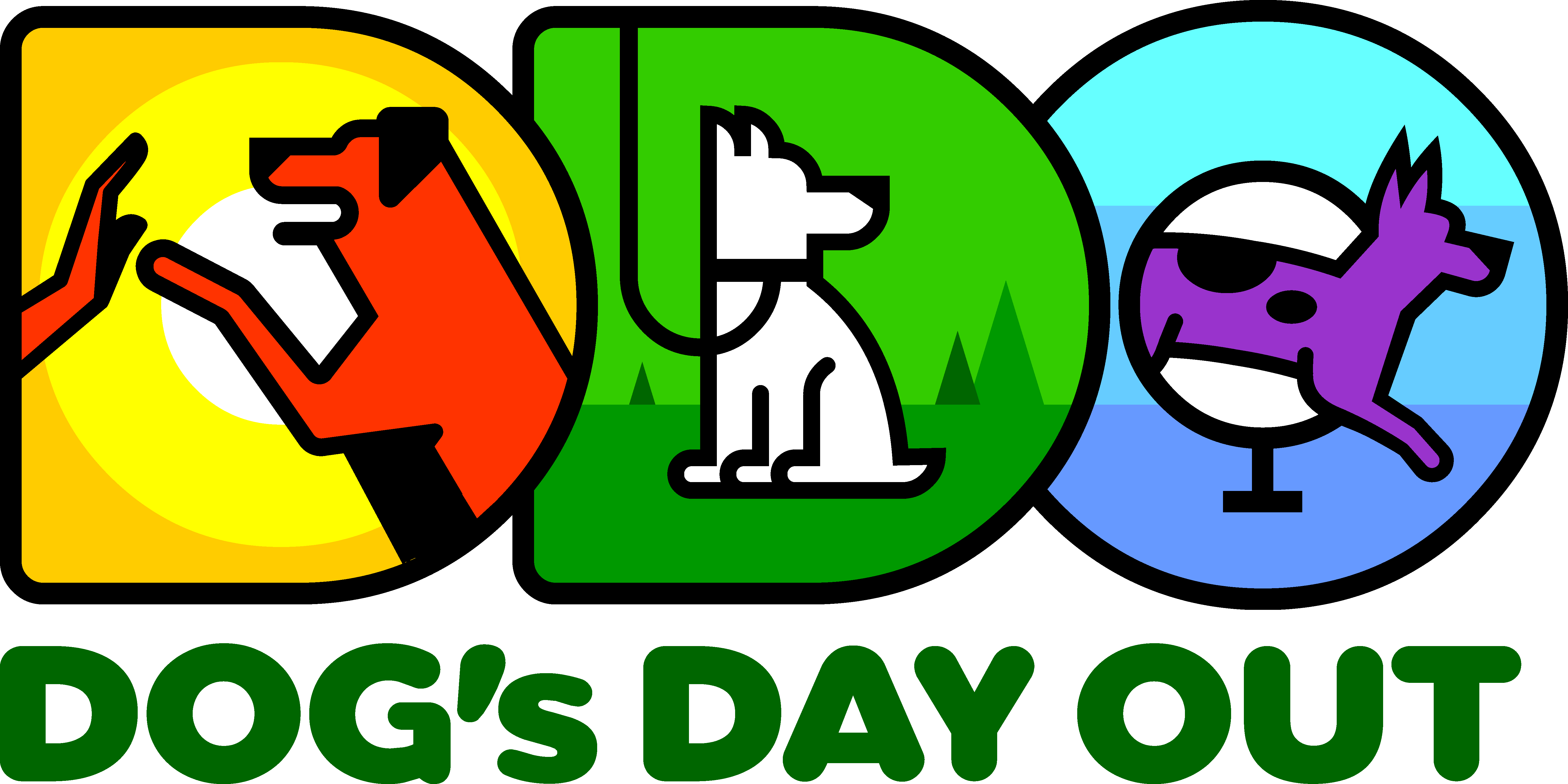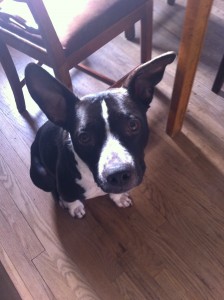I have owned and operated a dog day care and training facility for the past 12 years and have spent a lot of time with a lot of different types of dogs (2 herding type mixes of my own included) but something new happened to me last November… I adopted a Pit-bull. I joined a new club, for better or worse. Of course, no one really knows what a “Pit-bull” is since anything with a stubby-ish body and a boxy head seems to be included so I did have my new dog’s DNA tested. The results came back with “American Staffordshire” as the dominant breed (duh) with some Border Collie and Boxer thrown in there for fun. Looks like a duck, quacks like a duck… it’s a “Pit-bull!”
In the months since November I’ve had some interesting experiences with my Pit-bull (let’s call him Rufus*, since that’s his name). One day, I was picking up my son from preschool when an older brother (all of about 10) was interacting with Rufus, petting him, talking to him, having him “sit” etc. when he finally asked me what kind of dog Rufus was. I said “pit-bull mix” and the kid said, “Oh, so he’s a bad dog?” to which I replied, “what do you think?” We had a nice conversation and I believe Rufus changed that kid’s perception of the “scary Pit Bull” that day. One of the moms at that same school told me she couldn’t “get over the dangerous pit-bull thing” because she grew up in Miami in the 80’s and only had (or heard of) bad experiences. Maybe Rufus can change her mind too; we’re working on it.
Another experience I had this past year was some vehement and vocal opposition from some Pit-bull lovers who refused to take one of my obedience classes because it was being held in a dog day care that does not allow pit bulls. In my own day care I have no breed restrictions however, we also do a very thorough evaluation of every dog before they are accepted and continue to evaluate their behavior in the day care environment for as long as they attend. We do have pit bulls but have also denied some. We also have herding breeds and have also denied some of those. Same for Boxers, Labs etcetera. My day care is also very training oriented, not all are. Almost every organization that adopts out Pit-bulls tells adopters not to take them to dog parks and day cares, in fact they insist on it (when I was looking for a new dog I was denied even meeting a pit-bull because I own a day care). How can these Pit-bull lovers be so opposed to a day care that doesn’t allow them when the organizations adopting out the Pit-bull are banning them from day care as well? Isn’t that breed discrimination too? Shouldn’t we evaluate every dog on an individual basis? Yes, there are temperament and behavioral similarities within different groups of dogs but there are also exceptions to every rule. I have seen them, the amazing-with-other-dogs Pittie and the aggressive, “scary” Golden Retriever. They both exist. If the day care I use for that class does not feel comfortable with a breed we, the pit-bull lovers, need to show them how good our dogs can be. Prove to them that they do not need to be afraid. Prove to the moms. Prove to the kids. Stop yelling at people and start showing them your well trained, well behaved, sweet Pit-bull. One thing we know about dog behavior is that fear is involuntary – you can’t yell at your fearful dog “DON’T BE SCARED!!!” Can’t we give humans the same benefit? Shouldn’t our positive, gentle training methods translate to humans as well?
This summer Rufus and I made three visits to the Seattle Humane Society’s Animal Adventure Camp so the kids (ages 7-11) could have a “Positive Pittie” experience. It was awesome. In the past 10 months Rufus has also visited classrooms of 4th and 5th graders, preschoolers, gone on weekly tours of the farmer’s market, hung out at numerous playgrounds AND goes to day care. He happens to be a Pit-bull who does do well in day care but even he still needs to be managed there. I have to pause/stop his play (with dogs and humans) when he is getting too amped and while he spends a couple hours in the day care he also spends a lot of time in my office curled up in a bed next to my desk. Play can turn to something nasty very quickly; we need to be aware of our dog’s play style and when they become overloaded.
Being a responsible Pit-Bull owner to me means knowing their limitations and respecting them for who they are. Know what situations they can and cannot handle and be comfortable in. Being a responsible Pit-Bull owner doesn’t just mean don’t fight them, it means don’t put them in a situation that isn’t good for them or may force them to react in a way we don’t like. Being a responsible Pit-Bull owner means showing the world, starting with your own friends and family, what a wonderful, loving, well-behaved, fun, joyful, sweet dog Pit-Bulls can be! We change people’s opinions by educating them and showing by example, not by yelling at them.
*Rufus was adopted fron the Progressive Animal Welfare Society (PAWS) in Lynnwood, WA in November 2011. He was approximately 1-2 years old, in-tact and came in as a stray so we had no history on him. He had been in the shelter for 4 months before we adopted him. He now lives with a 6 year old child and an old grouchy cat and wishes we would get another dog for him to play with.
Want more info on these guys?
Join me August 23rd for PITTIE PARTY, a 1.5-hour seminar at Dog’s Day Out. What exactly is a “Pit Bull”? What do we know about these dogs? Are they different from other dogs? Are they vicious or are they “nanny” dogs? What do these “bully” types have in common with each other? What specific challenges or issues may guardians of these dogs incur? In this seminar we will discuss all of these questions as well as cover the history, temperament, and behavioral/training issues specific to “Bully” breeds, including Pit Bull-Types, American Bulldogs, Staffordshire and American Bull Terriers and mixes thereof.

